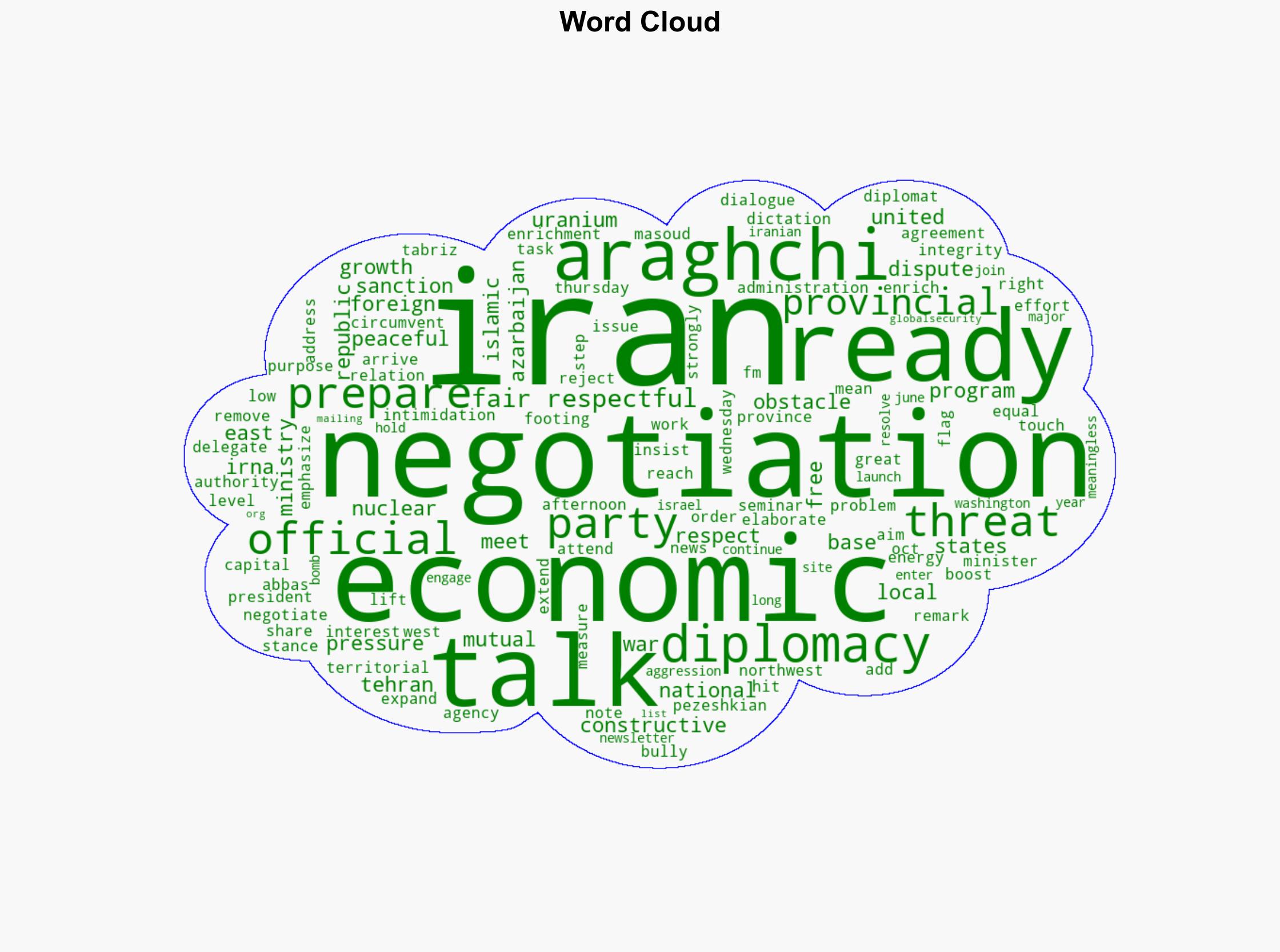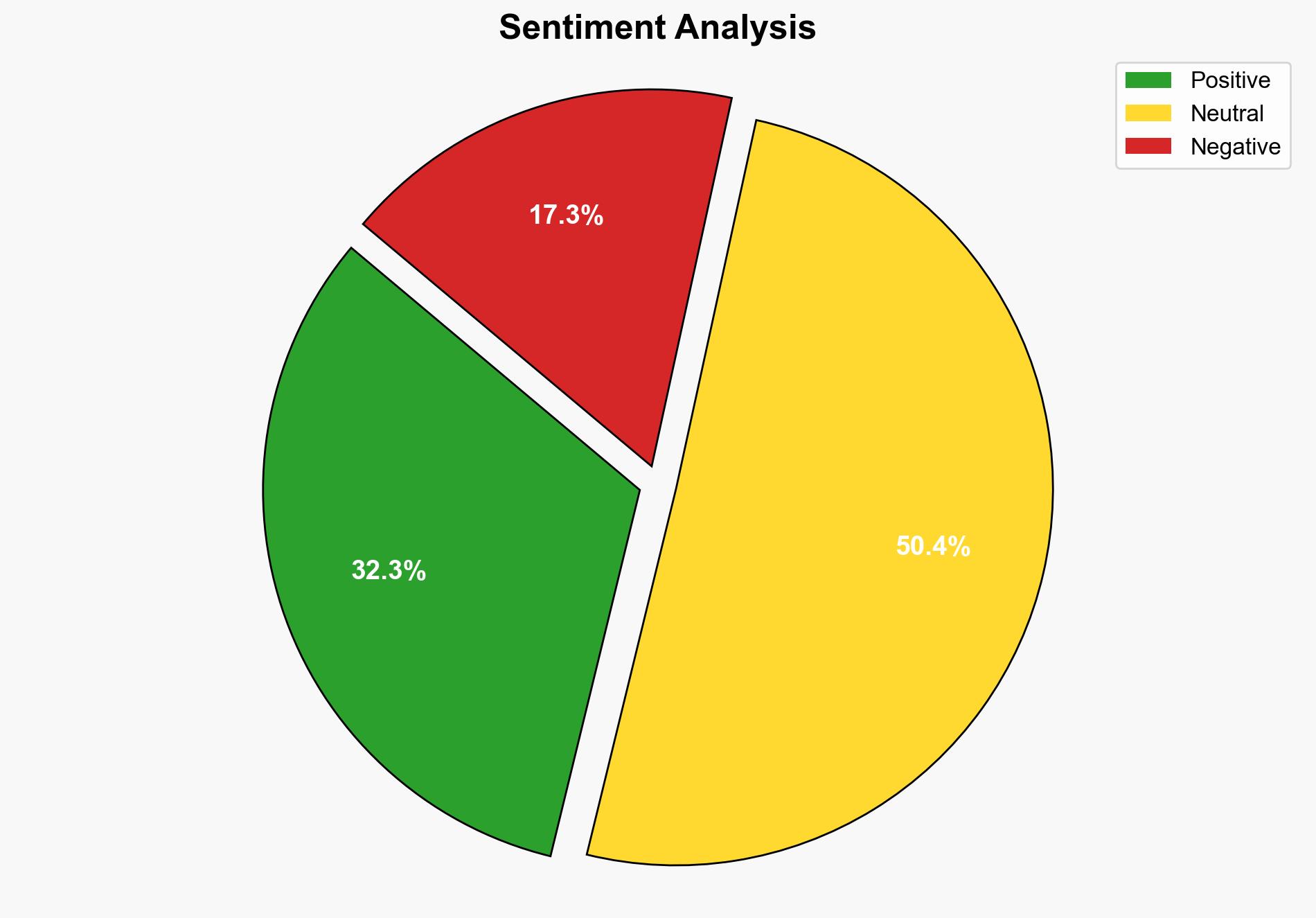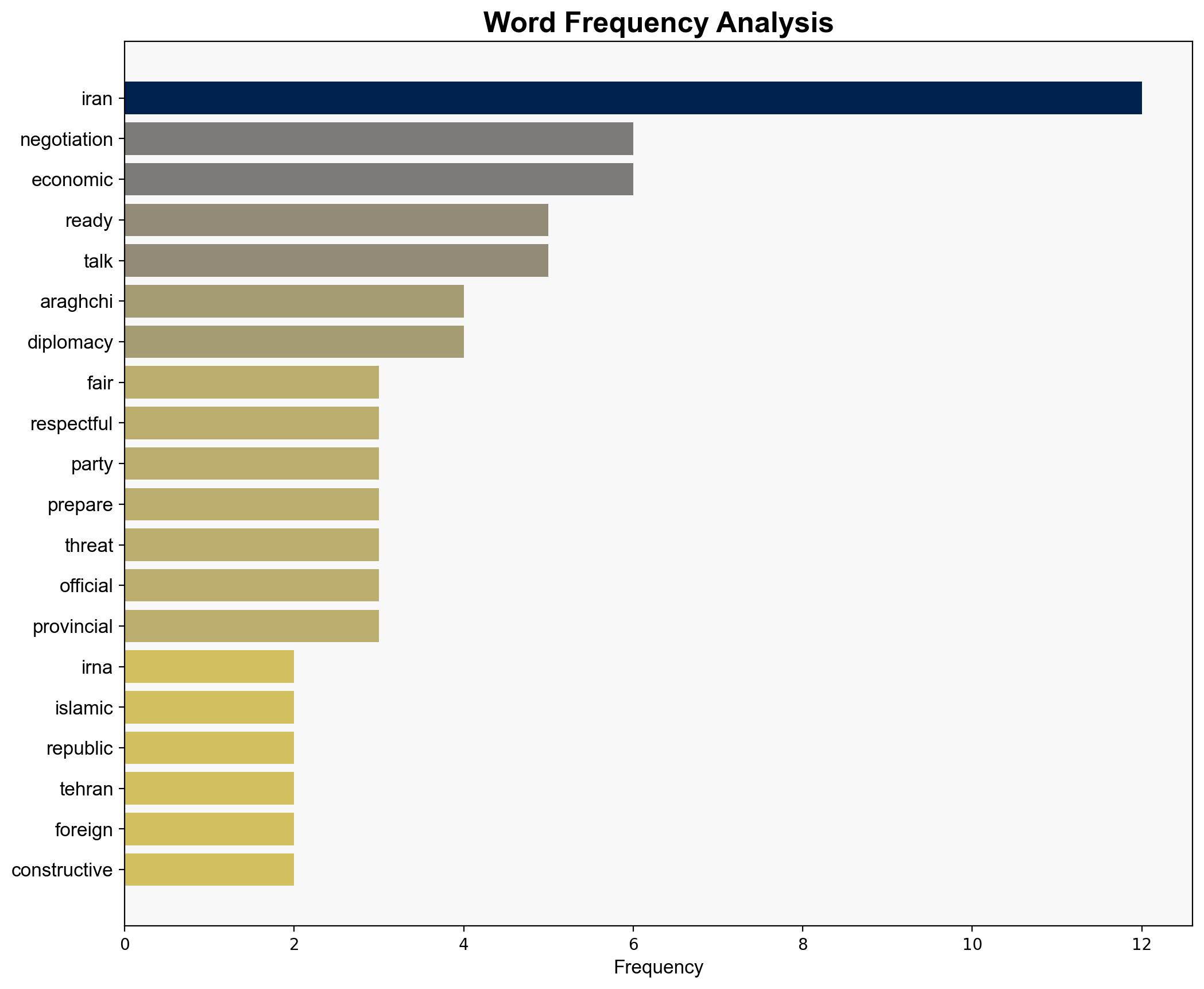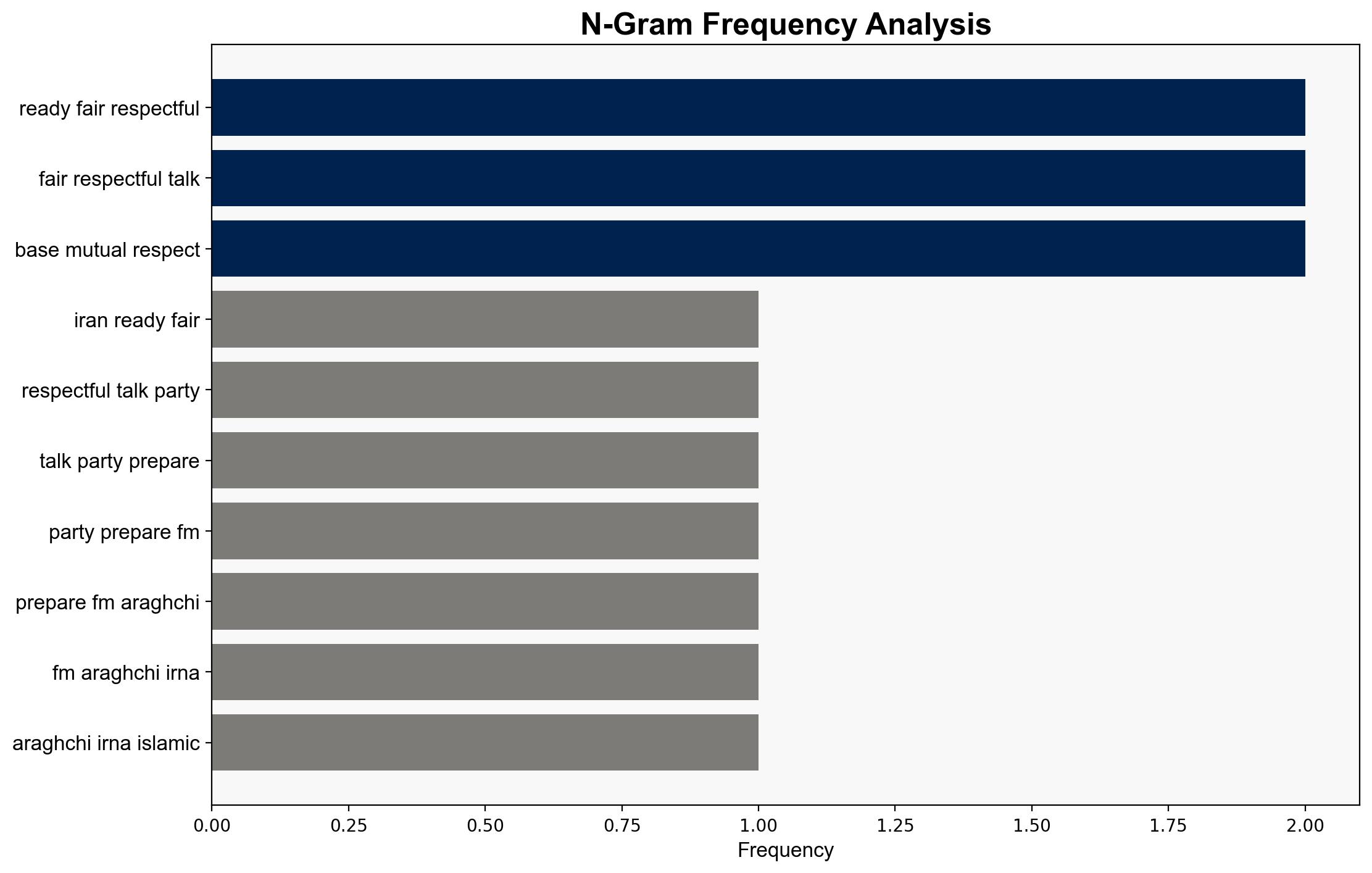Iran ready for fair and respectful talks if other parties are prepared too FM Araghchi – Globalsecurity.org
Published on: 2025-11-01
Intelligence Report: Iran ready for fair and respectful talks if other parties are prepared too FM Araghchi – Globalsecurity.org
1. BLUF (Bottom Line Up Front)
Iran’s statement about readiness for negotiations suggests a strategic positioning to alleviate international pressure while maintaining its nuclear ambitions. The most supported hypothesis is that Iran seeks to engage diplomatically to ease sanctions, with a moderate confidence level. Recommended action includes preparing for potential diplomatic engagement while bolstering regional alliances to counterbalance Iran’s strategic maneuvers.
2. Competing Hypotheses
1. **Diplomatic Engagement Hypothesis**: Iran is genuinely seeking to engage in fair and respectful negotiations to ease economic sanctions and improve its international standing. This is supported by Iran’s emphasis on mutual respect and economic diplomacy.
2. **Strategic Delay Hypothesis**: Iran’s offer for talks is a strategic maneuver to buy time and reduce international pressure while continuing its nuclear program. This is suggested by Iran’s historical pattern of using negotiations to delay and deflect.
Using ACH 2.0, the Diplomatic Engagement Hypothesis is moderately supported due to Iran’s economic pressures and recent diplomatic language. However, the Strategic Delay Hypothesis cannot be dismissed given Iran’s past behavior.
3. Key Assumptions and Red Flags
– **Assumptions**: It is assumed that Iran’s leadership is unified in its approach to negotiations. There is also an assumption that economic pressures are the primary driver for Iran’s diplomatic overtures.
– **Red Flags**: Iran’s historical use of negotiations as a stalling tactic raises concerns. The lack of specific commitments or timelines in the statement is a potential indicator of insincerity.
– **Blind Spots**: The internal political dynamics within Iran that may influence its negotiation strategy are not fully understood.
4. Implications and Strategic Risks
– **Economic**: Successful negotiations could lead to the lifting of sanctions, boosting Iran’s economy and regional influence.
– **Geopolitical**: Failure to engage constructively could escalate tensions, particularly with the United States and Israel.
– **Psychological**: Iran’s narrative of victimhood and resistance could be bolstered if negotiations fail, strengthening hardline elements.
5. Recommendations and Outlook
- Engage in multilateral diplomatic efforts to test Iran’s commitment to genuine negotiations.
- Enhance intelligence collection on Iran’s internal political dynamics to better understand negotiation drivers.
- Scenario Projections:
- **Best Case**: Successful negotiations lead to a phased lifting of sanctions and regional stability.
- **Worst Case**: Talks collapse, leading to increased sanctions and potential military confrontation.
- **Most Likely**: Prolonged negotiations with limited progress, maintaining the status quo.
6. Key Individuals and Entities
– Abbas Araghchi
– Masoud Pezeshkian
– Tehran
7. Thematic Tags
national security threats, regional focus, economic diplomacy, nuclear negotiations





